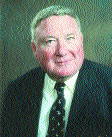Wanted: US Markets
- Published: December 31, 2004, By Stanley Sacharow, The Packaging Group
Package Converting
Many foreign flex-pack converters have asked me to assist them in entering the huge $20 billion US flexible market.
These companies generally have been fairly large firms with $50 million–$150 million in sales and enjoy the lion’s share of the domestic market. They manufacture materials on internationally recognized converting equipment. By and large, they have saturated their domestic market and are shipping to adjacent nations. Some even enjoy small successes in the states, but often they lack basic knowledge on how to market in the US.
I advise them to plan a long-term strategy based on know-how and quality production. Rather then simply "jump" into the market and hire a seasoned sales manager with user contacts, I tell them first to establish a presence stateside. This can be done by joining industry associations, speaking at conferences, and arranging for journalists to tour their plants and publish stories.
After about 12 months of image-building, it’s time to decide how to approach the US market.
Most converters will take the simple way out and hire a distributor. This approach often works successfully with rigid packages such as bottles and cartons; they are stock items and can be warehoused, with small orders shipped profitably.
But flexible packaging is a custom business that really doesn’t lend itself to a distributor’s operation. While there are distributors selling materials successfully from different converters, they tend to obtain fourth-tier orders for inexpensive commodity materials. Maybe that’s OK, but often I advise these converters their orders are far below their technical capacity, and they can produce and sell better materials and be infinitely more profitable.
There are two better approaches, short of opening a production plant: Find a niche product to sell in the US that is highly value added and sparsely produced by American converters, and sell directly; or arrange a joint venture with a US company.
There are many "niche" areas offshore converters can exploit. Shaped and spouted flexible pouches, retort pouches, and thin-gauge, printed aluminum foil are all profitable markets. Other markets underserved by US converters are novel active packaging concepts, high-barrier meat/cheese constructions, and novel flexible, pharma-shaped packages.
A joint venture is more difficult and requires the help of experts. There are less and less independent US flex-pack converters that can enter into a joint venture agreement with a foreign converter. (It’s easier in Canada, where there are more converters amenable to such agreements.)
It takes good business acumen to reach a mutually satisfactory agreement; however, this system can work quite well. An experienced sales force already is in place, and a customer base has been established. Although profits are shared, the high increase in sales often offsets this reduction in income.
Some foreign converters think that because they produce quality materials, are ISO approved, and maintain superb production facilities, the US market is simply waiting for them to arrive. They fail to understand why the only orders they can get—if they get any—are small print jobs on bid to the lowest price. They forget they are competitive not only with US converters but with the entire world. Complicating the market are the high differences in labor costs and currency conversions.
In spite of these factors, there are success stories that prove flexible converting is a global business to be enjoyed by the knowledgeable converter—no matter where the company is located. One such story is that of Dixie Toga (Brazil).
The leading flex-pack converter in Latin America, the firm decided to enter the US market in the early 1980s. Its first step was shipping to the US superbly printed, laminated coffee stock with Brazilian coffee beans. The company next secured a distributor for its products, soon changing directions and hiring a sales manager for the US. After several years of regional sales, frequent customer visits to Brazil, and difficult long-distance strategies, Dixie Toga entered into a joint venture with the Bryce Corp., Memphis, TN. Both firms enjoyed many years of enhanced profits. Eventually the association was dissolved, but by then Dixie Toga had made its mark in the US converting world.

Stanley Sacharow has been in the flexible packaging industry for more than 35 years. His company, The Packaging Group, is an organizer of targeted conferences and a consultant to the international packaging/converting industry. Contact him at 732/636-0885; This email address is being protected from spambots. You need JavaScript enabled to view it..


